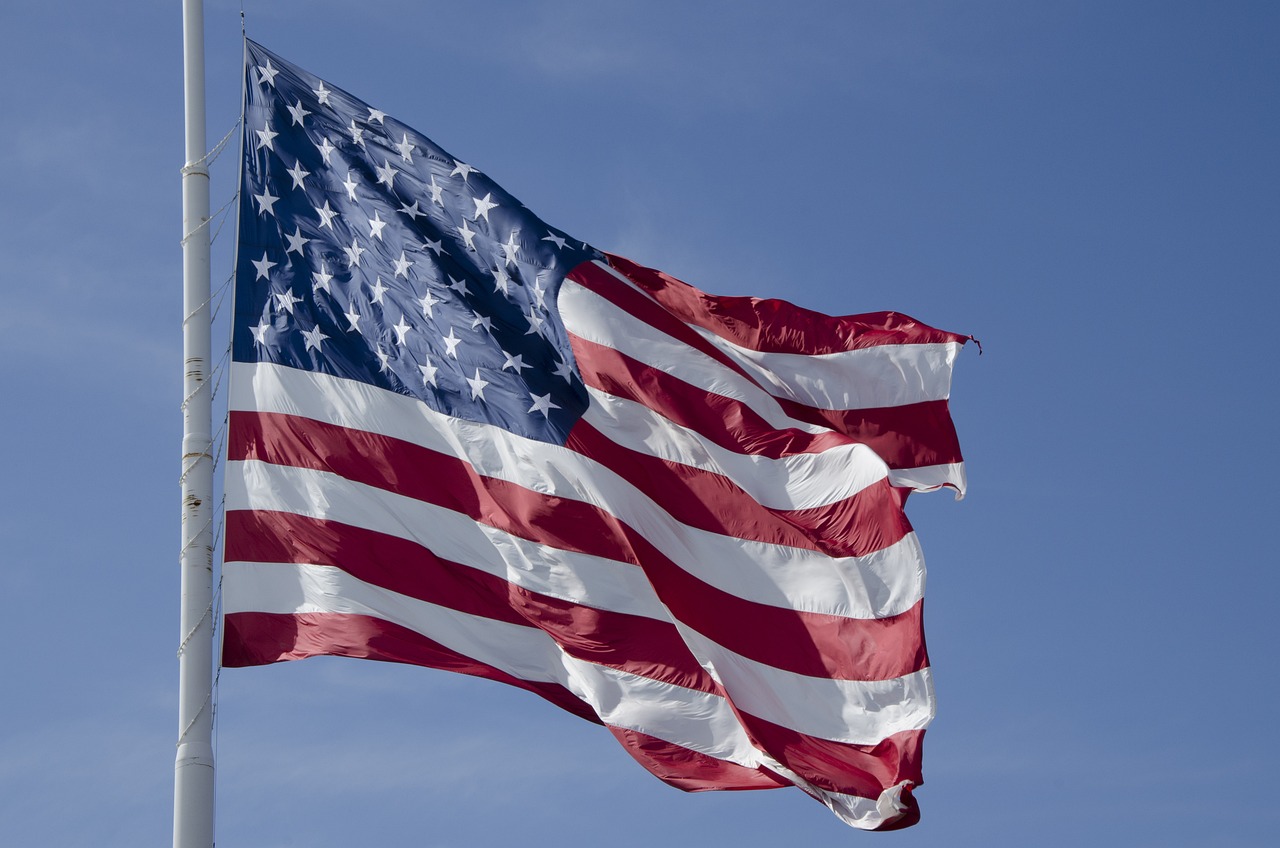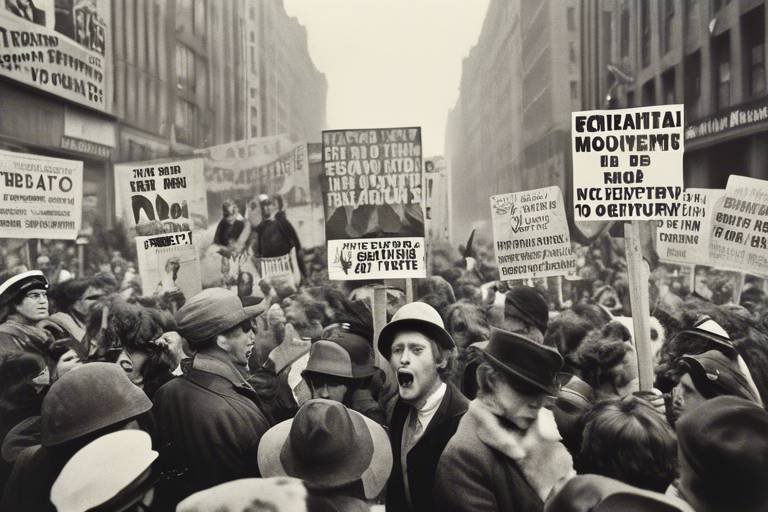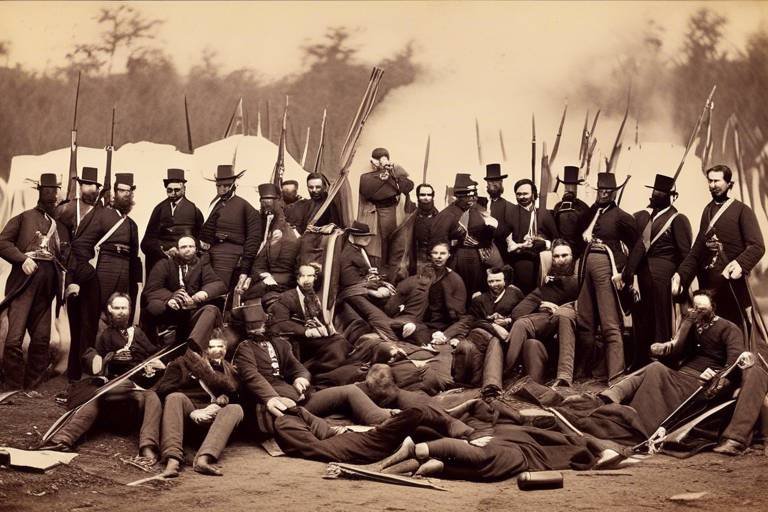The American Revolution - Fight for Independence
The American Revolution stands as a monumental chapter in the history of the United States, marking a fierce battle for independence that ultimately shaped the nation's identity. This revolutionary war was not just a conflict fought on the battlefield; it was a struggle for freedom, rights, and self-governance. The quest for independence ignited a spark that would lead to a series of events with far-reaching consequences, challenging the established order and setting the stage for a new era of governance in America.

Causes of the American Revolution
Topics to be discussed in the article include the causes, key events, major figures, impact on society, role of women, foreign involvement, legacy, significance, and modern perspectives on the American Revolution.
The American Revolution was not a sudden explosion but a culmination of various economic, political, and social factors that brewed discontent among the American colonies. The colonists felt increasingly oppressed by British policies that restricted their autonomy and imposed heavy taxes without representation. The Stamp Act of 1765, the Townshend Acts, and the Tea Act were among the many regulations that fueled the flames of rebellion. The cry of "No taxation without representation" echoed through the colonies, symbolizing the deep-rooted desire for self-governance and independence.

Key Events of the American Revolution
Topics to be discussed in the article include the causes, key events, major figures, impact on society, role of women, foreign involvement, legacy, significance, and modern perspectives on the American Revolution.
The American Revolution was a tumultuous period marked by significant events that shaped the course of history. From acts of defiance to formal declarations, each event played a crucial role in the fight for independence.
One of the key events that sparked the revolution was the Boston Tea Party, where colonists protested against British taxation by dumping tea into Boston Harbor. This act of rebellion symbolized the growing discontent with British rule and set the stage for further resistance.
The Battles of Lexington and Concord marked the outbreak of armed conflict between colonial militias and British troops. These skirmishes ignited the war for independence and showcased the colonists' determination to defend their rights and freedoms.
The Declaration of Independence, drafted primarily by Thomas Jefferson, formally declared the American colonies' independence from Britain. This historic document not only proclaimed freedom but also articulated the principles of liberty and self-governance that would shape the nation's future.
The Treaty of Paris in 1783 officially ended the Revolutionary War and recognized the United States as an independent nation. This diplomatic agreement solidified the hard-fought victory of the American revolutionaries and established the boundaries of the new nation.

Major Figures of the American Revolution
The American Revolution saw the rise of numerous major figures who played pivotal roles in shaping the course of history. Among these influential leaders were George Washington, often hailed as the "Father of His Country," for his leadership as the Commander-in-Chief of the Continental Army. His strategic brilliance and unwavering determination inspired countless patriots to continue the fight for independence.
Thomas Jefferson, the principal author of the Declaration of Independence, left an indelible mark on American ideals of liberty and democracy. His eloquent words continue to resonate through the ages, embodying the spirit of the revolution and the aspirations of a new nation.
John Adams, a passionate advocate for independence, played a crucial role in rallying support for the revolutionary cause. His diplomatic skills were instrumental in securing vital alliances with foreign powers, further strengthening the colonists' position against the British.
Benjamin Franklin, known for his multifaceted talents as a statesman, scientist, and inventor, was a key figure in garnering international support for the American Revolution. His charm and intellect proved invaluable in negotiating crucial treaties and securing vital resources for the fledgling nation.
These major figures of the American Revolution stood as beacons of courage and vision, guiding the colonies through tumultuous times and towards a future defined by independence and self-governance.

Impact on Society
The American Revolution had a profound impact on colonial society, reshaping the fabric of daily life and setting the stage for a new nation to emerge. One of the key impacts was the transformation in governance, as the colonies shifted from British rule to self-governance. This change sparked debates and discussions about the nature of democracy and the rights of citizens, laying the foundation for the democratic principles that would shape the United States.
Economically, the revolution brought about significant changes as well. The disruption of trade with Britain forced the colonies to develop their own industries and trade relationships, leading to a more diversified and self-sufficient economy. This economic independence laid the groundwork for the industrial growth that would define the young nation in the years to come.
Individual rights also saw a renaissance during this period. The revolutionary ideas of liberty and equality inspired discussions about the rights of all individuals, regardless of social status or background. These discussions paved the way for the Bill of Rights and other foundational documents that enshrine the rights of American citizens today.
Moreover, the American Revolution sparked social changes that reverberated throughout colonial society. The war created new opportunities for women to participate in public life, whether as activists, nurses, or even spies. Women played crucial roles in supporting the revolutionary cause, challenging traditional gender roles and setting the stage for future advancements in women's rights.
Overall, the impact of the American Revolution on society was far-reaching and transformative. It reshaped governance, economics, individual rights, and social norms, laying the groundwork for the birth of a new nation and setting the stage for the development of a distinctly American identity.

Role of Women in the American Revolution
Topics to be discussed in the article include the causes, key events, major figures, impact on society, role of women, foreign involvement, legacy, significance, and modern perspectives on the American Revolution.
During the American Revolution, women played crucial roles that often went unnoticed in the pages of history. While men were on the front lines of battle, women were the unsung heroes working behind the scenes, contributing in various ways to the revolutionary cause.
Women in the American Revolution took on diverse roles, from spies gathering crucial intelligence to nurses tending to the wounded soldiers on both sides of the conflict. They also participated in protests, boycotts, and fundraising efforts to support the revolution financially and morally.
One notable figure is Mercy Otis Warren, a writer and political activist who penned influential anti-British propaganda and advocated for independence. Her writings inspired and motivated many colonists to join the revolutionary movement.
Another remarkable woman was Deborah Sampson, who disguised herself as a man to enlist in the Continental Army and fought bravely in several battles. Her story exemplifies the courage and determination of women who defied societal norms to contribute directly to the fight for independence.
While women's contributions were essential to the success of the American Revolution, their efforts were often overshadowed by the achievements of male figures. It is vital to recognize and celebrate the significant impact that women had on shaping the course of history during this tumultuous period.

Foreign Involvement in the American Revolution
Foreign involvement played a crucial role in the American Revolution, providing essential support to the colonists in their fight for independence from British rule. One of the key allies of the American colonies was France, which provided military assistance, financial aid, and naval support. The Treaty of Alliance signed between the United States and France in 1778 formalized this alliance, leading to a significant shift in the balance of power in the conflict.
Spain also played a part in the revolution by entering the war against Britain in 1779. Spanish forces engaged British troops in various theaters, further stretching British resources and weakening their position in North America. Additionally, the Netherlands provided diplomatic recognition to the United States and engaged in trade with the colonies, contributing to their economic viability during the war.
These foreign powers not only offered military and financial assistance but also served as important diplomatic allies for the American colonies. Their involvement not only helped to secure the success of the revolution but also reshaped the geopolitical landscape of the time. The support of these nations was instrumental in tipping the scales in favor of the colonists, ultimately leading to the defeat of the British forces and the establishment of an independent United States of America.

Legacy of the American Revolution
One of the most enduring legacies of the American Revolution is the establishment of a new form of government based on democratic principles and individual rights. The revolution not only secured independence from British rule but also laid the foundation for the birth of a nation that prioritized freedom, equality, and self-governance. Through the Declaration of Independence and the subsequent Constitution, the Founding Fathers enshrined the ideals of liberty and democracy, shaping the future of American society.
Furthermore, the American Revolution inspired revolutionary movements around the world, serving as a beacon of hope for those seeking to break free from oppressive colonial powers. The principles of self-determination and popular sovereignty championed by the revolutionaries resonated far beyond the borders of the newly formed United States, influencing struggles for independence in Latin America, Europe, and beyond.
The legacy of the American Revolution also extends to the realm of individual rights and freedoms. The Bill of Rights, added to the Constitution in 1791, guarantees essential liberties such as freedom of speech, religion, and assembly. These rights, born out of the revolutionary fervor of the late 18th century, continue to shape the legal and political landscape of the United States, serving as a cornerstone of American democracy.
Moreover, the American Revolution sparked debates and discussions that continue to shape modern society. The legacy of the revolution is not just a historical artifact but a living, breathing force that informs contemporary political discourse and national identity. Questions of federalism, states' rights, and the balance of power between the government and the people can be traced back to the revolutionary era, highlighting the enduring relevance of this pivotal moment in American history.

Significance of the American Revolution
The American Revolution holds immense significance in world history, marking a pivotal moment that forever altered the course of nations. This revolutionary war fought between the American colonies and Great Britain from 1775 to 1783 was not just a struggle for independence but a beacon of hope for oppressed peoples worldwide. Its impact resonates through the annals of time, shaping the very foundation of modern democracy and national identity.
One of the key significances of the American Revolution lies in its role as a catalyst for the spread of democratic ideals across the globe. The principles of liberty, equality, and self-governance championed by the revolutionaries inspired similar movements in various parts of the world, sparking a wave of revolutions and independence struggles. The Declaration of Independence, with its bold assertion of unalienable rights, served as a guiding light for future generations seeking freedom from tyranny.
Furthermore, the American Revolution fundamentally transformed the structure of government, laying the groundwork for the establishment of a democratic republic. The revolutionary fervor that swept through the colonies led to the creation of a new system of governance based on the consent of the governed, where power resided in the hands of the people rather than a monarch. This revolutionary concept of popular sovereignty became a cornerstone of American political philosophy and set a precedent for democratic movements worldwide.
Moreover, the American Revolution played a crucial role in shaping the national identity of the United States. The shared experience of fighting for freedom and independence forged a sense of unity among the diverse colonies, creating a common bond that transcended regional differences. The revolutionaries' unwavering commitment to liberty and self-determination became ingrained in the American psyche, shaping the values and beliefs that define the nation to this day.
In addition to its domestic impact, the American Revolution had far-reaching international repercussions that reverberated across the globe. The successful rebellion against a major colonial power sent shockwaves through the established order, challenging the notion of imperial supremacy and inspiring other oppressed peoples to rise up against their oppressors. The revolution's legacy of resistance and defiance served as a beacon of hope for those struggling under foreign domination, fueling independence movements in Latin America, Europe, and beyond.
Overall, the significance of the American Revolution cannot be overstated. It stands as a testament to the power of ordinary individuals to effect extraordinary change, to challenge oppressive systems, and to forge a path towards a more just and equitable society. As we reflect on the legacy of the revolution, we are reminded of the enduring importance of freedom, democracy, and the unyielding spirit of those who dared to dream of a better world.

Modern Perspectives on the American Revolution
Modern Perspectives on the American Revolution have evolved over time as historians and scholars continue to reevaluate the events and significance of this pivotal moment in history. While the revolution is often romanticized as a noble fight for freedom and democracy, some modern perspectives delve deeper into the complexities and contradictions of the era.
One modern perspective focuses on the role of marginalized groups, such as enslaved Africans and Native Americans, whose experiences during the revolution are often overlooked in traditional narratives. By shedding light on these untold stories, historians are challenging the traditional view of the revolution as a purely heroic struggle.
Another contemporary view examines the economic motivations behind the revolution, highlighting the tensions between different social classes and the desire for economic independence from British mercantilism. This perspective emphasizes the role of self-interest and power dynamics in shaping the course of history.
Furthermore, modern perspectives also consider the global context of the American Revolution, placing it within the broader framework of colonial struggles for independence around the world. By drawing parallels with other revolutionary movements, scholars are able to analyze the revolution from a comparative perspective, highlighting its unique aspects and universal themes.
Additionally, debates continue to rage over the extent to which the American Revolution truly achieved its goals of liberty and equality for all. Some argue that the revolution fell short of its lofty ideals, pointing to the persistence of slavery and inequality in the new nation. Others contend that the revolution laid the groundwork for future social and political progress, albeit with limitations.
In conclusion, modern perspectives on the American Revolution offer a nuanced and multifaceted understanding of this transformative period in history. By critically examining the revolution from various angles, historians are able to uncover new insights and challenge traditional narratives, ensuring that the legacy of the revolution remains a topic of vibrant debate and exploration.
Frequently Asked Questions
- What were the main causes of the American Revolution?
The American Revolution was primarily fueled by economic grievances, such as taxation without representation, political tensions related to colonial governance, and social factors like a growing sense of American identity and independence.
- Who were some of the key figures in the American Revolution?
Prominent figures in the American Revolution include George Washington, Thomas Jefferson, John Adams, Benjamin Franklin, Paul Revere, and Abigail Adams, among others, who played crucial roles in shaping the course of the revolution.
- What impact did the American Revolution have on society?
The American Revolution brought about significant societal changes, including the establishment of democratic governance, protection of individual rights, and the fostering of a sense of national identity among Americans.
- How did women contribute to the American Revolution?
Women participated in various ways during the revolution, serving as spies, nurses, activists, and writers, contributing significantly to the cause of independence despite often being overlooked in historical narratives.
- What was the role of foreign countries in the American Revolution?
Countries like France, Spain, and the Netherlands provided crucial support to the American colonists by offering military aid, supplies, and diplomatic assistance, which played a vital role in the colonists' victory over British forces.
- What is the legacy and significance of the American Revolution?
The American Revolution's legacy includes the establishment of a democratic government, the inspiration for future independence movements worldwide, and the shaping of American values of liberty, equality, and self-governance.
- How is the American Revolution viewed in modern times?
Modern perspectives on the American Revolution vary, with ongoing debates about its causes, outcomes, and relevance to contemporary American society, reflecting its enduring impact on historical and political discourse.



















